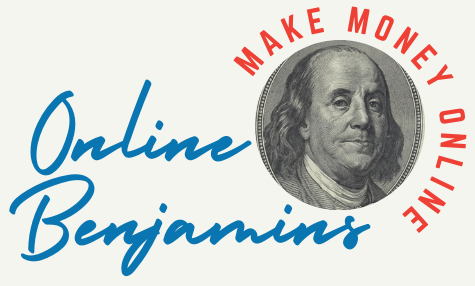I have always been interested in how to generate income from online content. Over the years, I have explored both blogging and YouTube, and I believe that each offers unique advantages depending on your content style, target audience, and how you plan to earn money.
QUICK LOOK: How to Choose – Blogging vs YouTube
- Content Type and Creation: Blogging typically involves writing well-structured articles, doing research, and including relevant images or simple graphics when needed. YouTube, on the other hand, is all about video content. Producing videos means filming, editing, and often learning to use special tools and lighting techniques.
- Monetization Options: Both blogging and YouTube offer various ways to make money, though the revenue streams differ. On YouTube, the primary income usually comes from advertising revenue. Blogs also host advertising setups like Google AdSense. A major advantage of blogging is the ability to build an email list that can be used to promote exclusive content or products directly to loyal readers.
- Niche Considerations: With YouTube, the platform’s enormous user base offers the potential for rapid growth, especially if your videos spark conversation through comments, likes, and shares. However, not every niche translates well into video format. Some topics work best when examined in writing, where in-depth details can be easily referenced. Blogs are especially effective for those who excel at written communication.
- Technical Skills Needed: The decision to choose one platform over the other often comes down to technical skills and personal comfort. Blogging usually involves managing a website, which may sound technical but has been simplified by platforms like WordPress. ouTube, however, generally requires a higher level of technical know-how. Video creation encompasses filming, sound recording, editing, and even some graphic design.
- Your Experience Level: For those just starting out online, blogging is often seen as the less intimidating option. Writing allows you to control the pace and edit your work until it meets your standards without the pressure of live performance. YouTube might be more appealing if you have a strong visual concept or if you feel comfortable speaking to a camera. However, it is really important to understand that success on YouTube usually requires additional technical investment and a willingness to learn.
In this article, I explain the differences between the two approaches and review key factors such as content creation, monetization methods, audience interaction, and niche selection. My own thoughts and practical details are shared to help guide you if you are starting your online adventure or looking to expand an existing platform.
Comparing Blogging and YouTube
Blogging and YouTube both offer creative ways to earn online revenue, yet they require different skills and present distinct challenges. It is important to understand how each medium works and why one might be better for your specific situation. In the paragraphs below, I compare several key aspects that can affect your final decision.
Content Type and Creation Process
Blogging typically involves writing well-structured articles, doing research, and including relevant images or simple graphics when needed. Many people find writing less intimidating than performing on camera.
With a blog, you have the freedom to explain topics in detail, build step-by-step guides, and incorporate helpful links. This format is ideal if you enjoy taking your time to develop ideas and provide clear instructions.
YouTube, on the other hand, is all about video content. Producing videos means filming, editing, and often learning to use special tools and lighting techniques. Many content creators prefer this format because it offers a dynamic and interactive way to present information.
Videos can captivate an audience with engaging visual demonstrations and spoken commentary. However, this method requires a certain comfort level in front of the camera and may involve a steeper learning curve when it comes to technical production skills.
Monetization Methods
Both blogging and YouTube offer various ways to make money, though the revenue streams differ. On YouTube, the primary income usually comes from advertising revenue. Ads run before, during, or after your video, and if your content attracts a large number of viewers, this can generate significant income.
Sponsorships from brands, product placements, and selling your own merchandise are additional avenues that many video creators explore. In contrast, many bloggers rely on affiliate marketing and the sale of digital products such as e-books and online courses.
Blogs also host advertising setups like Google AdSense. A major advantage of blogging is the ability to build an email list that can be used to promote exclusive content or products directly to loyal readers. Both platforms can be very profitable if you consistently produce quality content and stick with a strategy that fits your strengths.
Audience Engagement and Niche Considerations
One of the most important factors when choosing between blogging and YouTube is the audience you want to reach. With YouTube, the platform’s enormous user base offers the potential for rapid growth, especially if your videos spark conversation through comments, likes, and shares.
However, not every niche translates well into video format. Some topics work best when examined in writing, where in-depth details can be easily referenced. Blogs are especially effective for those who excel at written communication. Detailed how-to guides, technical reviews, and analysis benefit from the depth that a carefully crafted article can offer.
If your niche involves topics that require thorough explanations or step-by-step processes, a blog might be more suitable. Ultimately, the success of your content depends on matching your personal style with the expectations of your target audience.
Both approaches encourage community building and audience engagement, though the methods differ. Video platforms rely heavily on immediate visual interaction, while blogs tend to foster discussion through comments and email subscriptions. It is really important to consider what type of engagement you value most as you plan your content strategy.
A Detailed Look at Monetization Opportunities
When it comes to making money online, your platform often determines the types of monetization strategies available to you. Below, I provide a more detailed look at the revenue options for YouTube and blogging.
Revenue Options on YouTube
YouTube channels can earn money through several channels. Advertising is at the forefront of this model, and if your videos are engaging enough, the revenue generated from views and click-throughs can be substantial.
Sponsorships from companies looking to feature their products within your videos add another layer to this income. Many successful YouTubers also branch out by developing and selling their own merchandise or exclusive digital content via membership plans.
Even though there is significant income potential, building a profitable channel may require an upfront investment in camera equipment, lighting, and editing software. In addition, the ongoing challenge of creating fresh video content means you have to be both creative and disciplined in your production efforts.
Revenue Options for Blogging
Blogging offers a slightly different approach when it comes to revenue generation. Prominent bloggers often earn money by using affiliate marketing, where they review products and include links that earn a commission when a reader makes a purchase.
In addition, many bloggers make money by selling digital products such as downloadable guides, e-books, or video courses. Advertisement networks like Google AdSense continue to be a popular option, though the payouts may be smaller unless your traffic is high.
Another significant aspect of blogging is the ability to build a robust email list, which allows you to communicate directly with your readers and market additional products or content. This direct connection with your audience can lead to steady income over time.
Overall, blogging can be a reliable way to generate consistent revenue if you are willing to invest in your content and audience relationships.
Technical Skills and Creative Comfort
The decision to choose one platform over the other often comes down to technical skills and personal comfort. Blogging usually involves managing a website, which may sound technical but has been simplified by platforms like WordPress.
The ease of setup, ready-to-use themes, and built-in features make blogging accessible even for beginners. YouTube, however, generally requires a higher level of technical know-how. Video creation encompasses filming, sound recording, editing, and even some graphic design.
While many find this process creative and exciting, others might feel overwhelmed by the demands of video production. It is important to honestly assess your strengths before choosing a platform, as the learning curve for video can be significant.
This is one of the reasons I advise newcomers to consider starting with blogging. The lower barrier to entry means you can begin sharing your ideas more quickly, and once you feel comfortable, you may decide to add video content as you grow your skills.
Choosing the Right Platform for Beginners
For those just starting out online, blogging is often seen as the less intimidating option. Writing allows you to control the pace and edit your work until it meets your standards without the pressure of live performance.
Most people feel more natural writing their thoughts down, and the open format of blogs lets you develop your ideas thoroughly. YouTube might be more appealing if you have a strong visual concept or if you feel comfortable speaking to a camera.
Some creators thrive on the immediate feedback that video comments and live sessions provide. However, it is really important to understand that success on YouTube usually requires additional technical investment and a willingness to learn a more complex set of production skills.
Ultimately, the best approach is the one that aligns with your strengths and interests. Whether you choose to write or record videos, what matters is your dedication to consistently improving your content and connecting with your audience.
Other Considerations of Audience, Niche, and Engagement
It is important to remember that neither blogging nor YouTube guarantees instant success. Much depends on how well you understand and engage with your audience. In some cases, a smaller but highly engaged community can be more valuable than a large, passive one.
Your chosen niche influences which platform might serve you best. Some topics are naturally adapted to a written format, especially those that require detailed analysis or technical instructions. Other subjects, especially those that benefit from visual storytelling, such as product demonstrations, travel, or cooking, can thrive on video platforms like YouTube.
Each platform offers unique engagement mechanisms. Blogs foster long-form discussion and allow readers to return to detailed guides over time, while YouTube offers interaction through comments, likes, and even live chat sessions. The key is to choose a medium that fits not only your content but also the way you enjoy interacting with others.
Wealthy Affiliate and Building an Online Business
While searching for a solid foundation in online business, I came across Wealthy Affiliate. This platform provides excellent training, tools, and a supportive community for digital marketing enthusiasts.
Whether you are creating a blog or starting a YouTube channel, the all-in-one training modules help you learn search engine optimization, content creation, and reliable monetization techniques without overwhelming technical details.
The step-by-step guides and community forums available at Wealthy Affiliate have proven invaluable for many new creators. The platform not only teaches you how to set up a website or video channel but also emphasizes ethical marketing practices that lead to long-term, sustainable results.
For those uncertain about where to begin, Wealthy Affiliate offers a clear roadmap and a welcoming network of like-minded individuals. This resource is beneficial regardless of whether you choose blogging or video production. The strategies you pick up can easily be applied across formats, and over time, you might even find a way to combine both for greater reach and impact.
The best part is that Wealthy Affiliate offers a FREE STARTER Membership where you can take a tour of the training, tools, community, and the overall platform experience without risking any of your hard-earned cash. Then you can decide for yourself if it would be a good fit for you and your business goals.
So, Which Is More Profitable?
After carefully weighing the factors, it becomes clear that the profitability of blogging versus YouTube depends on several variables. YouTube can rapidly grow your audience through engaging video content and is well-known for its advertising revenue model and sponsorship deals.
However, the technical demands and competitive nature of video content mean you must be prepared to invest both time and resources. Blogging, however, offers a steadier income stream, especially for those who prefer written expression.
It opens opportunities through affiliate marketing, advertising, and building an email list, which can translate into recurring revenue over time. In my experience, many beginners start with blogging due to its lower technical requirements and then expand into video once they’ve built confidence and a loyal readership.
Regardless of the medium, success usually comes down to understanding your audience and maintaining consistency. Creators who take the time to study feedback, adjust their content, and stick with their chosen approach are the ones who find lasting profit.
Both blogging and YouTube can be rewarding avenues—as long as you commit to continuous improvement and let your authentic voice shine through.
Where to Go From Here
As you make plans for your online future, consider what type of content you enjoy creating and how you best connect with your audience. Many successful online entrepreneurs begin with one platform and later branch out to experiment with different formats.
Mixing blogging and video content might provide a balanced strategy that leverages the strengths of both methods. Keep in mind that building an online business requires persistence, learning from mistakes, and adapting your strategies over time.
Whether you choose to focus on detailed blog posts or engaging video content, success comes from a commitment to quality and regular interaction with your followers. With steady effort, your online adventure can lead to both creative fulfillment and financial reward.
Blogging vs YouTube Conclusions
Deciding between blogging and YouTube is not simply about choosing one method over the other; it is about aligning your skills and interests with the right platform for your ideas. While YouTube may offer a faster track to reaching a large audience, blogging gives you the space to develop detailed content and foster meaningful reader connections.
In the end, profitability depends on how well you know your audience, your consistency in delivering quality content, and your willingness to adapt as you learn along the way. If you are just beginning your online adventure, consider starting with blogging to build a solid foundation.
As you grow in confidence and skill, you might experiment with video content to further expand your reach. Remember that success in the online world comes with perseverance, continuous improvement, and the ability to adapt to new trends and technologies.
The path ahead may have its challenges, but with dedication, an openness to learning, and a clear strategy, you can create a profitable online presence—whether through a well-crafted blog or an engaging YouTube channel.
Check Out Our Most Recent Articles:
- Leveraging AI For Effective Inventory Management

- Best AI Video Generators For TikTok And Youtube

- How To Build A Branded Dropshipping Business

- Best AI Tools For Creating Downloadable Images

- How To Create Viral Faceless Content For Tiktok

- Best AI Website Builders

Wishing You Much Success in Your Online Business Journey,

- onlinebenjamins.com
- thebeachangler.com
- thesinnerinthemirror.com
- Facebook: Online Benjamins
- Twitter: @onlinebenjamin1
- Instagram: dotcomdinero
- YouTube: Online Benjamins
Rex
P.S. Again, Wealthy Affiliate is COMPLETELY FREE to get started. No catch, no obligation, no bait and switch. I will personally be in touch with you when I join to offer my support and guidance to help you get up and running online.
P.P.S. If you have any questions or are unsure of anything, I am here, and I promise I will get back to you on all of your questions and comments. Just leave them below in the comment section. Follow me on Twitter: @onlinebenjamin1, Instagram: dotcomdinero, and Facebook: Online Benjamins.
Hi,
Thanks for stopping by and congratulations for taking the first steps to building your own online business. I’ve been in business both offline and online since 1997. I would consider it an honor to help you build your business. Father of 3, life long outdoorsman with an education in Genetics and Economics. This site is about cutting through the BS and finding the real opportunities in the online world. I look forward to working with you.



